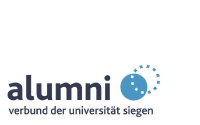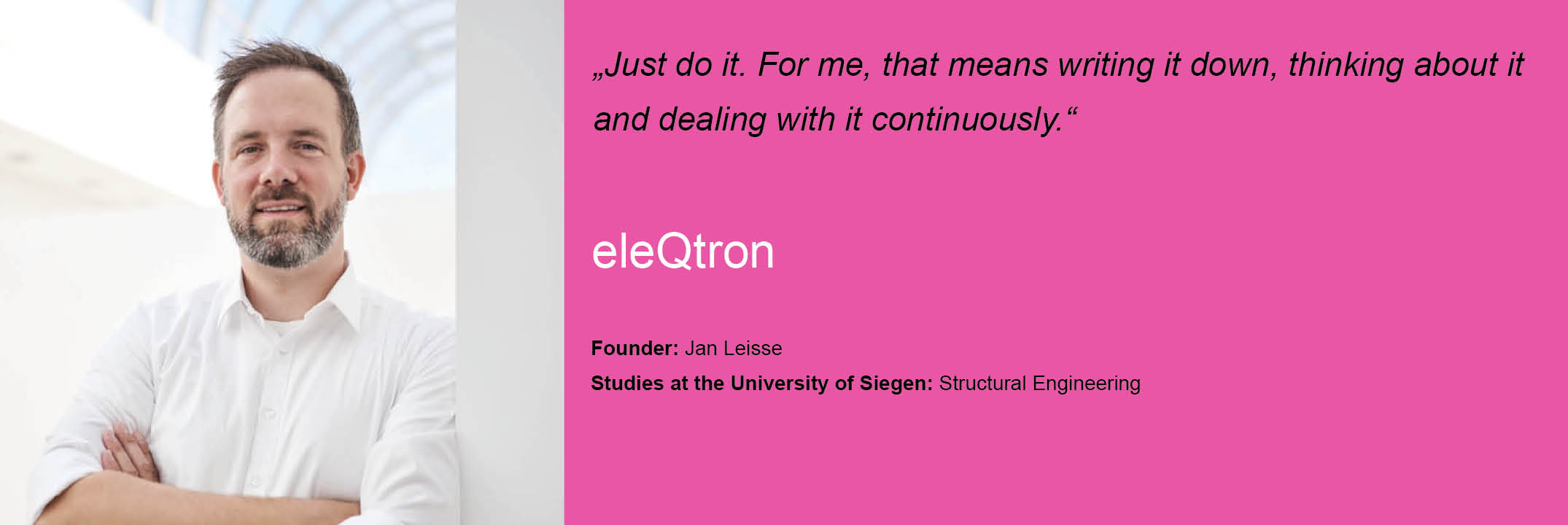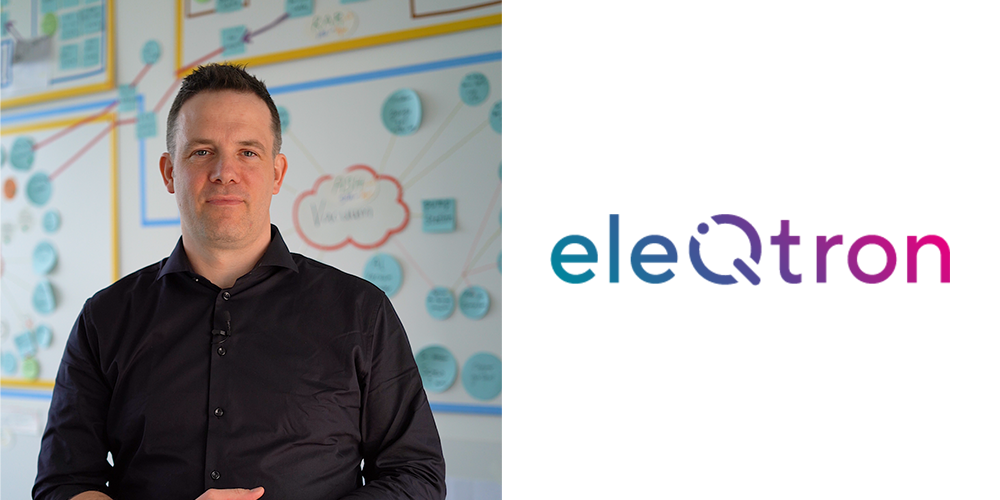eleQtron
A portrait in video format can be found at the end
The start-up eleQtron, founded at the University of Siegen, deals with high physics. A team of more than 40 employees from 15 nations, as a spin-off of the Chair for Quantum Optics, develops scalable quantum computers for Germany. Co-founder Jan Leisse explains in the interview how quantum computers will solve unsolvable problems today and how, as a trained civil engineer and MBA, he continues to develop the company.
Quantum computing sounds like science fiction. Can you explain to a "normal" person what a quantum computer is?
A quantum computer is a computer that utilizes the laws of quantum mechanics. It doesn't work with bits and the corresponding states of 0 and 1 like conventional computers, but it uses quantum bits (Q-bits). These Q-bits can assume multiple states simultaneously and be entangled with each other. As a result, the performance of a quantum computer increases exponentially with the number of Q-bits. In this way, complex problems can be solved even with just a few Q-bits. Our basic technology is ion traps. Single atoms are trapped in an electromagnetic field. These are cooled, programmed with microwaves, and optically read out. This is how our quantum computer works. Since 2013, the first German quantum computer has been at the Chair of Professor Christof Wunderlich in Siegen.
What can the quantum computer be used for?
Quantum computing is still relatively new from a research perspective today. Everything we are currently implementing is at the limit of what is currently possible. It will certainly take several years before a universally applicable system is developed, but in the future, many different technical areas are expected to benefit from quantum computing. The computing power of the quantum computer is intended to help solve complex problems with high computational requirements in the shortest possible time. Problems that cannot be solved today because even with supercomputers, the computing power is not sufficient. Possible applications include real-time traffic flow control, production of vaccines or medicines, development of new materials and substances, and of course, decryption of highly secure cryptography.
A quantum computer does not develop on its own: Who is part of your team?
The first quantum computer is located at the Chair of Quantum Optics of Professor Christof Wunderlich. Together with the best specialists worldwide, he brings many years of experience in the field of quantum optics into the development. Together with Michael Johanning, our CTO, who has worked as the second man at the Chair of Quantum Optics for a long time and now works full-time at eleQtron, and me as CEO, we are building eleQtron. This combination of deep technical expertise and my experience in business acumen creates a very effective synergy. This is how we were able to grow to more than 40 employees from the end of 2020 to mid-2023 and take the first steps towards a successful company coming from science.
From a civil engineer with a secure job to a co-founder of a start-up: How did that happen?
Before I started with eleQtron, I already had initial experience with founding, new business fields, and deeptech. At Viessmann, as part of corporate development, I already gained experience with M&A, new technologies, and corresponding development work, and in my last position as managing director at Albrecht Bäumer, I gained experience with new business fields and the creation of business plans. In 2020, I left Bäumer and coincidentally met Martin Hill in Siegen on the topic of Deep Tech. He said, "Jan, we have something totally crazy here." I was immediately excited about the topic, so I joined eleQtron as a co-founder at the beginning of 2021. Being a founder is exactly my thing and super exciting. It's really great to be able to do exactly this here today.
What is innovative about eleQtron? What about competition in the development of quantum computers?
There are also other technological approaches to realizing quantum computing. However, one of our advantages is, among other things, that we calculate with atoms. Since each atom is always exactly the same per se, regardless of where it is, we already have a major advantage over the other prominent approach based on superconductors. Of course, we are in competition with Google, IBM, Microsoft, and other companies aiming to develop quantum computers. However, since we are on the edge of what is technologically feasible, it is not only about financial strength – it must really be the right idea at the right place , and the race is therefore completely open.
How do you deal with challenges?
There are also other technological approaches to realizing quantum computing. However, one of our advantages is, among other things, that we calculate with atoms. Since each atom is always exactly the same per se, regardless of where it is, we already have a major advantage over the other prominent approach based on superconductors. Of course, we are in competition with Google, IBM, Microsoft, and other companies aiming to develop quantum computers. However, since we are on the edge of what is technologically feasible, it is not only about financial strength – it must really be the right idea at the right place, and the race is therefore completely open.
What challenges do you face with eleQtron?
It is important that Germany takes quantum computing seriously and does not lose, but rather remains at the forefront. Quantum computing is mega disruptive and will bring immense changes in almost all industries and regions. Consistent financing compared internationally is important, and that is already difficult in Germany – nevertheless, the biggest challenges currently exist on the technical side. The need for skilled workers is real, and physicists trained in ion traps are rare, etc. However, it should not be forgotten that even old economy companies have challenges to master.
What advice do you give to those interested in founding?
Just do it. For me, that means writing it down, thinking about it, and continuously engaging with it. One should dare to ask questions. And "founding" also always means experiencing many setbacks, but still persevering.
This portrait is based on an interview with Jan Leisse in April 2022 and was written by Thomas Crämer.
Here for the startup's homepage.
```


